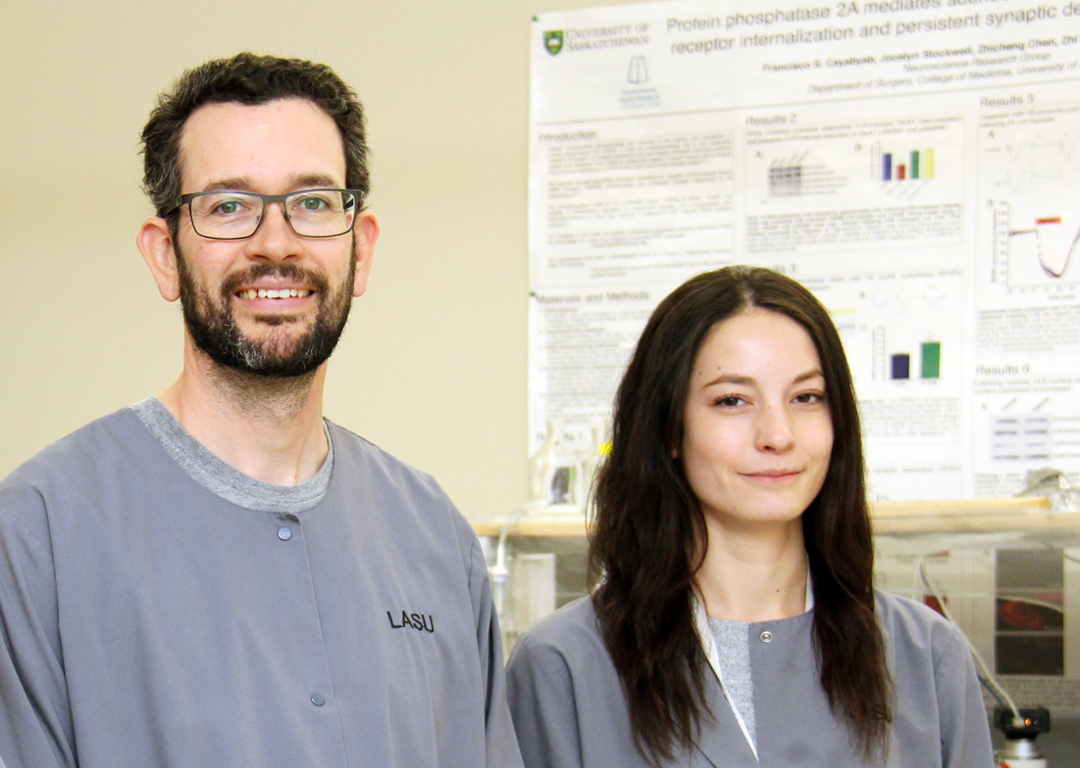
Viral infections during pregnancy could be linked to behavioural abnormalities in offspring
SASKATOON – Male and female rats whose mother experienced a simulated viral infection during pregnancy behave abnormally, consistent with behavioural alterations in autism or schizophrenia, research by the University of Saskatchewan (USask) shows.
The USask research, published in the journal eNeuro, found that young adult rats, exposed to a simulated viral infection in utero, displayed abnormal behaviour, suggesting specific brain changes while in the womb.
The research by John Howland physiology professor in the College of Medicine, suggests that inflammation during pregnancy alters the brain development of unborn offspring and may predispose them to psychiatric illness, including schizophrenia. Howland’s findings are consistent with human studies linking exposure to inflammation in the womb to increased rates of psychiatric disorders including schizophrenia and autism.
Previous studies have found that babies whose mothers were exposed to the flu virus during the first half of their pregnancy may face a higher risk of developing schizophrenia in later life.
Schizophrenia, a serious psychiatric illness, affects around one per cent of the population. The risk of developing the illness as an adult can be up to three per cent among those whose mothers contracted flu in the first half of their pregnancy.
Read more on the university's news site.
